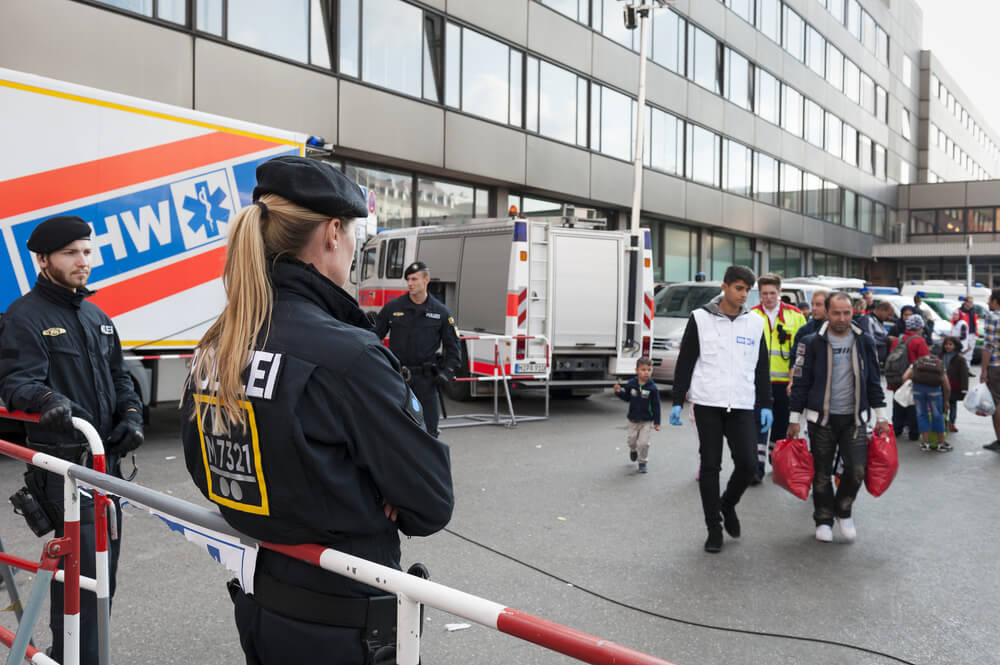The Christian Democratic Union (CDU) cannot expect a particularly favourable result in the state elections in Brandenburg on Sunday. Although its poll ratings are mostly stagnant (i.e., they hardly fluctuate), it is likely to enter the state parliament of Brandenburg, the region around Berlin, as the third strongest party.
In Brandenburg on Sunday, the far-right AfD will confirm its significant growth from the last elections in the eastern German states of Thuringia and Saxony, where polls suggest it will receive around a third of the vote.
Should these projections materialise, the Social Democratic Party (SPD) could potentially suffer the most, as the AfD's victory could leave them without power in Brandenburg for the first time since Germany's unification in 1990.
However, on the eve of the Brandenburg elections, the CDU took an important step that shows that it prioritises the federal parliamentary elections next year in September.
Resolved dilemmas in the conservative coalition
The CDU nominated party leader Friedrich Merz as the future chancellor and thus definitely profiled its strategy, as well as expectations from the decisive elections in a year.
With the promotion of Mr Merz as the future conservative chancellor, the dilemma of whether there will be a conflict between the CDU and its traditional partner, the Bavarian Christian Social Union (CSU), has been resolved.
"The chancellor question has been decided. Friedrich Merz is doing it. I'm fine about that, and I support it unequivocally," said CSU leader Markus Söder at a joint press conference with Mr Merz on Tuesday.
The dilemmas surrounding the chancellor candidate within the bloc of sister parties CDU and CSU were not harmless
The dilemmas surrounding the chancellor candidate within the bloc of sister parties CDU and CSU were not harmless, as Mr Söder led the way in support for the post among members of the two parties until recently.
Until half a year ago, slightly more than a third of the CDU and CSU membership saw him as a candidate for chancellor, while Mr Merz had only about 15% of the membership's support.
However, Merz's re-election as CDU president in May, a clear indication of the conservatives' preferences ahead of the federal election, significantly bolstered his move towards a joint candidate for chancellor.
Shift to the right
Friedrich Merz as a candidate for chancellor, with the strong support of the CSU, is now a clear challenge to the ruling SPD and their leader, Olaf Scholz, who has already announced his candidacy for a new chancellor term.
The conservatives thus clearly showed that they would oppose the social democrats with a more pronounced conservative policy, somewhat further away from the political centre.
Friedrich Merz personifies that heightened conservatism with his long career
Mr Merz personifies that heightened conservatism with his long career, during which he had long been in the shadow of the previous chancellor and leader of the CDU, Angela Merkel.
His political profile as a consistent conservative will mean a kind of discontinuity in relation to the more moderate, centrist politics of Angela Merkel ahead of the elections, which will be one of the most important tests for the CDU.
After succeeding Ms Merkel at the head of the CDU in 2022, Friedrich Merz also inherited a losing trend but managed to reverse it and consolidate the conservatives in the leadership position, according to polls. Their popularity hovers around 30%, which is a double-digit advantage over SPD's main competitors.
Tougher immigration policy
The conservative candidate for chancellor, therefore, has a tangible result behind him that put the CDU on the road to recovery from a heavy defeat in the 2021 elections and strengthened it in the leading position according to the polls.
This good result not only contributed to Merz winning the internal race for the chancellor candidacy but will rightfully be one of his more important assets in the forthcoming campaign.
For the growing trajectory of his leadership, Friedrich Merz can thank the change of course towards migrants. Unlike his predecessor at the head of the CDU, Angela Merkel, Merz's migration policy is far more restrictive, which is also the most important point of discontinuity between the two policies that the current party leader insists on.
 Unlike his predecessor at the head of the CDU, Angela Merkel, Merz's migration policy is far more restrictive
Unlike his predecessor at the head of the CDU, Angela Merkel, Merz's migration policy is far more restrictive
Additionally, Merz's tougher stance on the migrant issue resonates with public opinion. At the start of September, almost three-quarters of Germans (73%) were in favour of increased border controls, and 71% were in favour of deporting migrants at the country's borders.
The Social Democratic-Green government, under pressure to address the strongly growing anti-immigrant sentiments in German society, has increased surveillance at all border crossings this week.
Migrant and asylum issues will undoubtedly remain at the top of the agenda for the next year, until the September 2025 election. As a result, the conservative candidate for chancellor can hope for growing support as he shifts a critical part of his policy to the right, meeting voter demands.
How far to the right, that is, how close to the policy of the growing extreme right from the AfD, Merz will need to weigh well in the coming year.